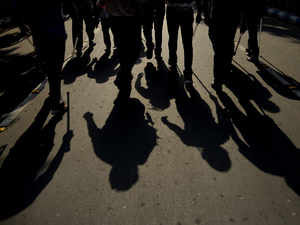
"Elections in India increase the possibility of communal violence if BJP stresses on nationalist themes," Dan Coats, Director of National Intelligence said.
India may face communal tension before the Lok Sabha elections in May, America's intelligence chief told US lawmakers on Tuesday.
"Parliamentary elections in India increase the possibility of communal violence if BJP stresses nationalist themes," Dan Coats, Director of National Intelligence, told the US Senate Select Committee on Intelligence in a written statement.
Coats made that statement as part of US intelligence community's assessment of worldwide threats in the year 2019. Coats appeared before the Select Committee to present their worldwide threat assessment. CIA Director Gina Haspel, who has just returned from a trip to India, FBI Director Christopher Wray and Defense Intelligence Agency Director Robert Ashley were also present during the Senate meeting.
"BJP policies during Modi’s first term have deepened communal tensions in some BJP-governed states, and Hindu nationalist state leaders might view a Hindu-nationalist campaign as a signal to incite low-level violence to animate their supporters," Coats told the committee.
Coats also warned that increasing communal clashes could alienate Indian Muslims and allow Islamist terrorist groups in India to expand their influence.
He also said that cross-border terrorism and strained ties may continue at least till the elections. "We judge that cross-border terrorism, firing across the Line of Control (LoC), divisive national elections in India, and Islamabad's perception of its position with the United States relative to India will contribute to strained India-Pakistan relations at least through May 2019, the deadline for the Indian election, and probably beyond," he added.
"Political maneuvering resulting from the Indian national elections probably will further constrain near-term opportunities for improving ties," Coats said.
On India-Chine relations, Coats said the ties may remain tense, despite efforts on both sides to manage
tensions since the border standoff in 2017. "Misperceptions of military movements or construction might result in tensions escalating into armed conflict," he noted.
No comments:
Post a Comment